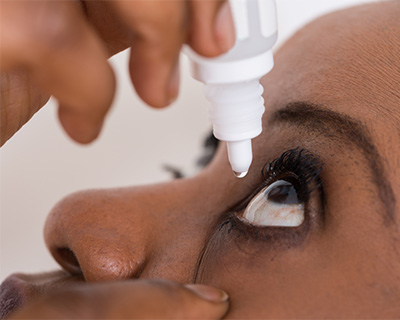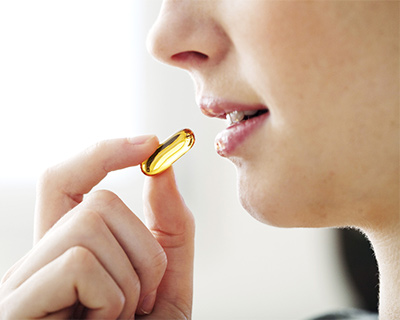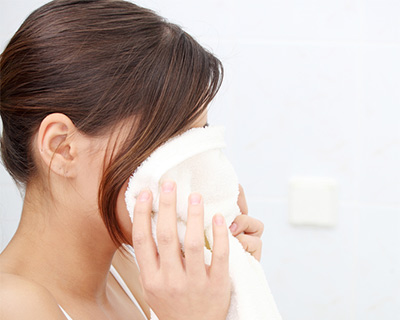At some point, nearly everyone experiences that gritty, uncomfortable feeling when their eyes become too dry. But for some people, dry eye is more than a temporary annoyance. It is an ongoing problem called ocular surface disease that demands constant management.
Ocular surface disease is a very common disorder. It happens when your eyes don’t produce enough tears or the right quality of tears. Tears, which are made from three separate layers, are vital for keeping your eyes healthy and comfortable.
Anyone can have ocular surface disease, though it is more common among women, particularly after menopause.
Dry eye and your environment
Where you live may play a role in developing dry eyes. For example, people who live in major cities with high levels of air pollution may be more likely than those in areas with less air pollution to suffer dry eye symptoms. A study of U.S. military veterans found people in and around Chicago and New York City were three to four times more likely to be diagnosed with dry eye syndrome compared to people in areas with relatively little air pollution.
The same study also showed that people who live in higher-altitude zip codes, where the air is typically drier, are 13 percent more likely to develop dry eye than people at lower altitudes.
Based on these study findings, eye doctors recommend that dry eye sufferers who live in smoggy cities or very dry climates use specific tactics to help manage and control their symptoms.
Specifically, they suggest:
- using a high-quality air filter at home in major cities or other areas with a lot of air pollution, and
- using a humidifier in the home to add moisture to dry air.
Here are some other ways you can minimize the impact of your environment on your dry eye symptoms:
Protect your eyes in windy areas

If you are often in a windy area, wear a pair of wraparound sunglasses to reduce the chance of wind blowing directly into your eyes and drying them out. Remember that fans and hair dryers can make your eyes dry, so limit your exposure to them.
Avoid cigarette smoke

Are you around cigarette smoke often, or do you smoke? There are already a lot of good reasons not to smoke or be exposed to second-hand smoke, but keep in mind that cigarette smoke can irritate your dry eyes. Smoking can also increase your risk of developing dry eye in the first place. Stay away from smoke.
No matter where you live, the following tips can help you manage your dry eye symptoms:
Rest your eyes often and blink

Working at a computer, reading or watching television can dry your eyes out. This is because you don’t blink as often as you normally do. Take breaks every 10 minutes, give your eyes a rest and try to blink more frequently to help your eyes regain some of the moisture they've lost.
Try artificial tears

Artificial tears are available without a prescription. Use them as often as you need to, but if you find yourself using them more than once every two hours, you may want to use tears that are preservative-free. Lubricating gels can also help. Because they are thicker and blur your vision, you should use them at bedtime.
Omega-3 fatty acid supplements may help

Some people find relief from their dry eye symptoms by supplementing their diet with omega-3 fatty acids, found naturally in foods like oily fish (salmon, sardines, anchovies) and flax seeds. Ask your ophthalmologist if you should take supplements of omega-3 fatty acids and, if so, how much and in what form.
Care for your eyelids to help improve tear quality

Putting warm compresses on your eyes can help release oil in your eyelids' glands, helping to improve the quality of your tears. Also, wash your eyelids carefully with a clean washcloth and soap and warm water, rinsing your eyes thoroughly afterward. Several new technologies are available to treat your eyelids in the doctor's office or at home.
If you are struggling to manage the dry eye symptoms of ocular surface disease, talk with your ophthalmologist to determine the best course of treatment for you.